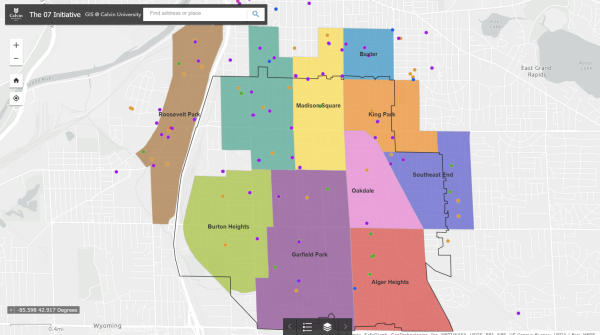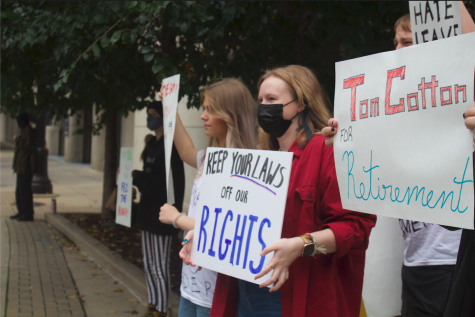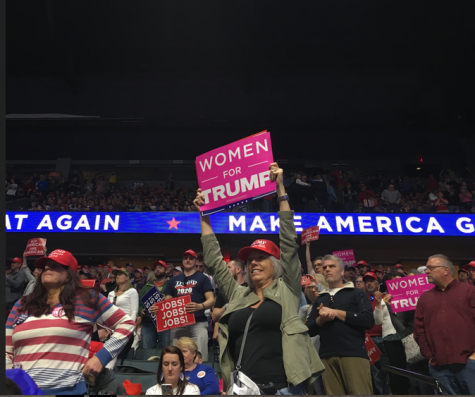An interview with Bing Goei, Director of the Michigan Office for New Americans
“We believe that when Michigan welcomes immigrants, Michigan thrives,” reads Welcoming Michigan.org, a publication of the Michigan Office for New Americans (MONA).
This new office, which Governor Snyder instituted in an executive action last January, seeks to lift Michigan’s declining population and stimulate its economy by making Michigan one of the most immigrant-friendly states in the country.
The executive order makes its intentions clear: “It is crucial to Michigan’s reinvention, population growth, economic vitality, cultural diversity and well-being that Michigan is known as a state that embraces, welcomes and sustains a diverse population and the economic growth resulting from that diversity,” it reads.
To run the new office, Governor Snyder reached out to entrepreneur and Grand Rapids community leader Bing Goei, whose experience includes owning Eastern Floral and sitting as the Christian Reformed Church’s first non-Caucasian Executive Director of the Synodical Committee on Race Relations.
As the Director of the MONA, Goei is the chief advisor to the governor and state departments regarding immigration policies and procedures.
The issue of immigration is personal for Goei. Born in Indonesia, he immigrated with his family first to the Netherlands before settling in Michigan at age 11. He, along with the governor, believes that immigrants are one of the keys to Michigan’s future.
Over the last census period, Michigan was the only state in the country to lose population. This came with a loss of thousands of workers, from agricultural workers to tech professionals.
“We are all impacted by the lack of labor,” Goei said.
Knowing the specialized skills that go into everything from picking apples to starting a business, Goei does not like to think of immigrants in terms of “highly-skilled” or “low-skilled.”
“There is no such thing as high skills and low skills, only specialized skills” said Goei. “That’s how we box people in and diminish their value. The person with a Ph.D. in engineering is not going to get hired by the person who needs someone to pick apples.”
But convincing Michigan residents to support increased immigration isn’t always easy.
“The biggest barrier that we have to overcome is the lack of awareness or true information,” Goei said. “One of the things that’s out there is the idea that ‘they’re taking jobs away from U.S. citizens.’ We have data that will show you that that’s not true.”
“The only thing in my mind that changes people’s hearts is faith,” he said, “but if you take that out of the equation, it has to be information.”
In fact, first-generation Michiganders are three times more likely to start a business than their U.S.-born counterparts, creating jobs through their entrepreneurship. Others in manufacturing or agricultural sectors create jobs by filling otherwise-unfilled gaps in production.
Another population that Goei is interested in is Michigan’s over 24,000 international students, who contribute hundreds of millions of dollars to the state economy, but do not have an easy way to stay in the state after they graduate.
Nor is it easy to obtain a work visa. There are cases where, “the employer had the international talent who wanted to stay here and work for the company,” Goei said, but that the current visa cap systems sends these students “back to become our competitors — that’s how dumb we are.”
In its first year, much of the MONA’s work has been laying a groundwork for the future. This year, however, Goei sees as a year for action. “Now that we are in 2015, our office has identified what we can do and what we can’t do,” he said.
Because much immigration policy is set at a national level, Michigan cannot independently raise the number of immigrant visas it will grant.
Instead, while the MONA does advocate at a national level, it has focused more on local legislation that removes barriers to immigrants’ success, and on creating an environment in the state that is warm and welcoming.
Refugees, for example, frequently enter with specialized skills, skills Goei wants to ensure can be plugged into Michigan’s economy: “Another thing we can do is to make sure that our licensing and regulatory policies are not artificial barriers to allow these skilled individuals to come and practice their trade,” he said.
While much of the MONA’s work is on a high-level policy level, Goei says all of us can contribute to at least one of the office’s goals — being a welcoming community to Michigan immigrants and refugees:
“I think we have to challenge even businesses to look at what they are doing to ensure that some of the traditions are not barriers to other people coming in,” he said.
He also hopes that people, especially churches, can speak up about immigration policy. “If you look at Jesus’ life he makes statements about what is right or wrong,” he said. “I think it’s the same thing we need to do — to insert ourselves into systems that sometimes we don’t like, because you can never change the system from the outside.”
Goei believes that Christians have a particularly strong stake in encouraging reform in immigration policy. “There are Christians who don’t want any of this, who don’t value immigration at all, and I don’t get it,” Goei said. “Is this an environment where God would say ‘well done’?”
In his work and his life, Goei proves what Governor Snyder’s executive order states: “Talented immigrant entrepreneurs, scientists, students and workers are currently living and working to fuel Michigan’s comeback and are a vital component of Michigan’s economic engine, tax base, and social and cultural fabric.”
In this work, as in his previous initiatives, Goei says he asks himself: “What can I do to ensure that the role that God has given me reflects his values in this area?” This is a question that all Michigan residents can ask themselves.








